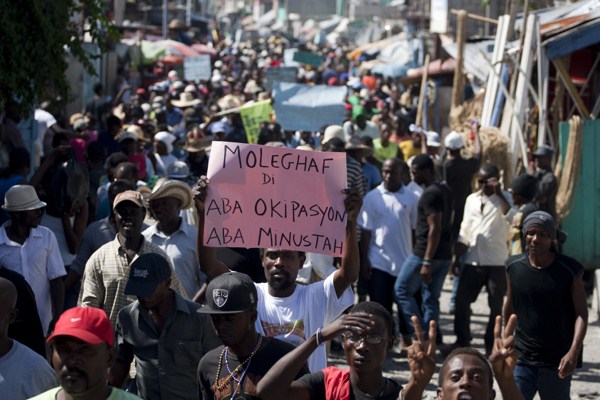There is no question that Haiti’s government has hit the ground hard lately. Prime Minister Laurent Lamothe’s Cabinet resigned in December, following mounting criticism of its record on human rights and the economy, as well as its failure to hold local and parliamentary elections for over three years. The election delays rendered parliament dysfunctional last month, as terms expired for a third of Haiti’s Senate seats and the entire Chamber of Deputies.
Meanwhile, on the streets, a steadily growing opposition movement generates at least one large anti-government demonstration each week. For two days last week, cities across Haiti were paralyzed by a public transit strike against government-set fuel prices. On the economic front, public investment in Haiti dropped 65 percent in the last three months of 2014, compared to the previous year. The government has also racked up $1.6 billion in oil debts through its involvement in Venezuela’s generous Petrocaribe program, which allows Haiti to buy cheap oil with deferred financing and then sell it for a higher domestic price and pocket the difference. Although that has allowed the Haitian government to fund social programs to check more popular dissent, Haiti’s beleaguered president, Michel Martelly, will leave much of that bill to his successors, to be paid over the next 25 years.
All this is a crisis for Martelly, but also for his foreign friends. The United States, Haiti’s largest donor, has been particularly supportive throughout his four years in office. U.S. Ambassador to Haiti Pamela White has enthusiastically promoted the government’s pro-business policies, which have been pursued by four different finance ministers since 2010, while disparaging the opposition. As the political crisis reached a boiling point in early January, White publicly twisted lawmakers’ arms to support Martelly’s not-quite constitutional efforts to install an electoral council and promulgate an electoral law.

